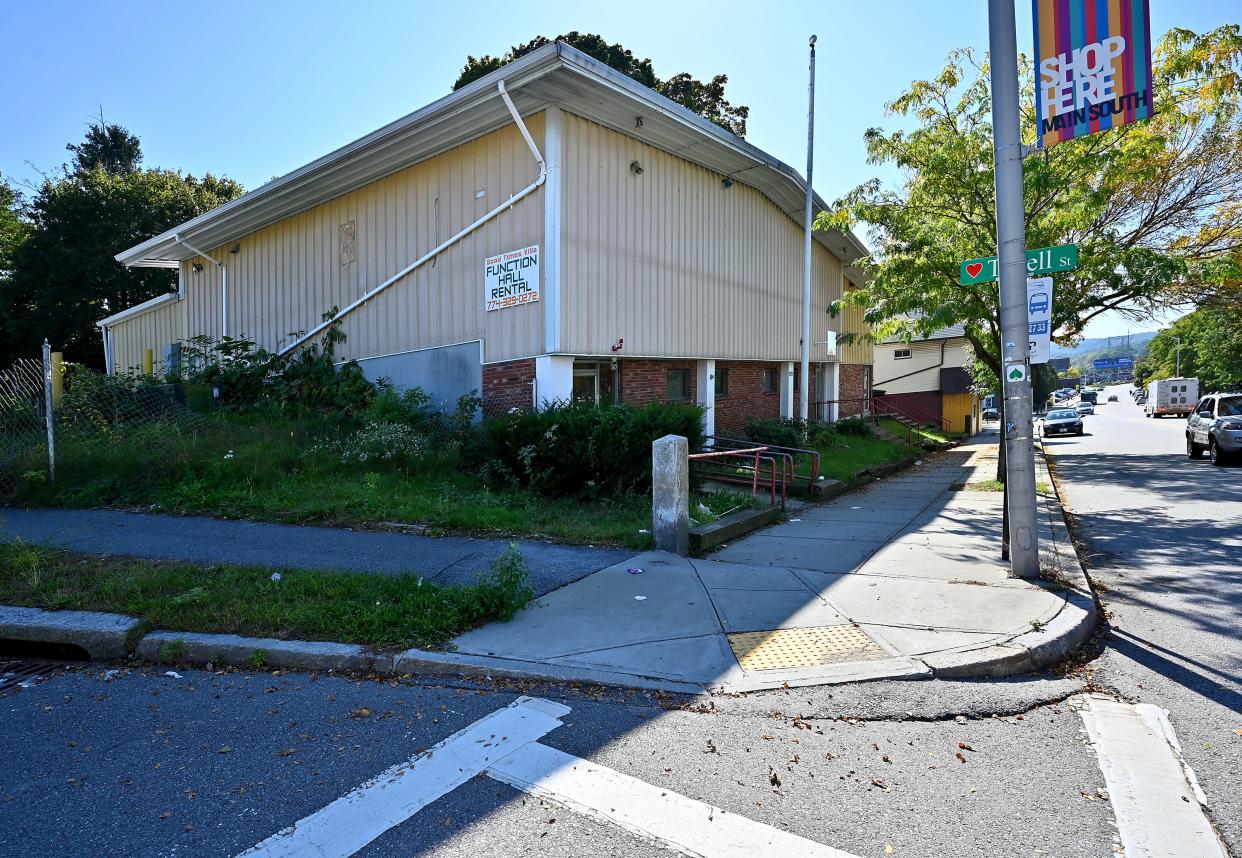Addiction treatment group buys building in Main South, fueling neighborhood angst

WORCESTER — Spectrum Health Systems Inc. has purchased the former American Legion Post at 1023 Main St. in the Main South neighborhood, and District 4 City Councilor Sarai Rivera is raising concerns about how the addiction treatment organization may use the site.
Spectrum paid $910,000 for the property.
Alli Schoff of Spectrum said in a brief statement that the organization is still finalizing plans for the site and the space is currently in use by its mobile unit.
"This location was added to our mobile unit's service route as of Friday, 9/8, while plans for the facility are still being finalized. We can however confirm there will be no changes in services to Worcester residents," Schoff said.
Rivera, who represents the Main South area, sent out a news release Tuesday claiming that the organization plans to use the building to merge two programs including a methadone clinic.

In an interview, Rivera said Spectrum had been "completely off the radar" for community members and city officials, saying she found out about the purchase after being alerted by a resident who read real estate reports.
Rivera said her understanding was that Spectrum was shutting down its services at Merrick and Pleasant streets and consolidating services at 1023 Main St.
After alerting the city, Rivera said the city administration organized a meeting with Spectrum.
Thomas Matthews, a spokesman for City Manager Eric D. Batista's office, said Batista held a meeting that included Spectrum CEO Kurt Isaacson, Mayor Joseph M. Petty and Commissioner of Health and Human Services Dr. Matilde Castiel.
According to Matthews, Isaacson told the officials that Spectrum Health Systems intended to move treatment programs as data showed the organization has "a high concentration" of clients in Main South.
Matthews said Petty told Isaacson about neighborhood concerns, such as the high number of services already in the area, and recommended neighborhood engagement.
In Rivera's statement, she said that there were "serious concerns" from Main South residents and businesses about the future use of the location.
"Main South residents, organizations and business owners are standing together for the well-beingand safety of our beloved neighborhood," Rivera said.
Rivera was concerned how close 1023 Main St. is to a residential area, three elderly housing towers, schools and school bus stops. University Park Campus School, the Goddard School of Science and Technology and Claremont Academy are schools in the area.
A spokesperson for Worcester Public Schools said he did not have enough information to provide comment.
The area has also long been at the center of discussion over the perceived oversaturation of supportive services and homeless shelters, Rivera added.
"While we value community development and support initiatives that enhance our neighborhood's quality of life, we believe it is essential to ensure that such programs align with our neighborhood's unique character and prioritize the safety and welfare of its residents," Rivera said.
Rivera said this was not a case of a not-in-my-backyard attitude. She said Spectrum leadership failed to understand the high amount of services in the Main South area.
"If you have any idea or understanding about community, you would know that we have been talking about over-saturation for a long time," Rivera said.
Rivera said two other programs are immediately visible from 1023 Main St. and she could point to three others nearby.
Rivera also said she believed Spectrum's leadership had stereotyped the racially and ethnically diverse Main South neighborhood. She referenced efforts to bring positive economic development and improvements to the neighborhood in recent years.
Rivera also said the leaders listed on Spectrum's website all appear to be white and questioned whether they are in touch with Worcester.
Spectrum announced in July it was moving its headquarters to Westborough.
Worcester police reported that the city saw a slight increase in non-fatal overdoses in the first half of 2023, 468 from January through the end of July. Fatal overdoses dropped 70% to 20 in that same time period.
The South Middlesex Opportunity Council, known as SMOC, homeless shelter at 25 Queen St., which is located in District 4 in the Main South area, was the location with the highest number of repeat overdoses within the city in a 12-month period ending July 31. Over 30 repeat overdoses occurred at the SMOC shelter.
Rivera also brought up issues in a portion of the city where Spectrum currently has a methadone clinic.
Spectrum also has a clinic at 585 Lincoln St. City officials and police have viewed the Lincoln Plaza area as a problem area in the city with an "oversaturation" of services. It has a high concentration of homeless residents and previously saw many police calls.
In recent years, police calls have decreased in the Lincoln Plaza area following a community improvement effort.
Rivera said she doubted community members would quietly allow for Spectrum to place a methadone clinic at 1023 Main St.
"This is not going to be something that just happens here," Rivera said. "We as a community are exhausted, we're frustrated, we're tired and we're energized to fight back. Enough is enough."
She mentioned potentially looking at zoning regulations on the amount of services that are placed in certain portions of the city.
"If we are the heart of the commonwealth, we need to make sure that heart beats for everyone throughout the city," Rivera said.
Tuesday, Rivera submitted a motion to the City Council asking the administration to organize a meeting with Spectrum representatives and Main South neighbors. The motion was unanimously sent to Batista.
Sharon O'Connor Gordon, who has lived in the neighborhood since 1977, said she notified Rivera about the purchase. She lives on Tirrell Street near 1023 Main St.
"Something like that, I would think the abutters and the neighbors should have had some input on it," Gordon said.
Saying that the relevant portion of Main South is closer to the Webster Square area, Gordon said she did not believe there was a need for a clinic in that part of Main South.
"If they need it in Main South, put it closer to where the need may be," Gordon said. "And that's about a mile, or a mile and a half from here."
Gordon repeated Rivera's concern about the proximity to a residential area and a school bus stop.
"Kids are going to be down there and addicts are going to be walking in getting their methadone. I mean, did they not think this through at all?" Gordon said.
Calls for comment to leadership of the Main South Community Development Corporation and the Main South Business Association were not returned by Thursday afternoon.
The mobile health unit that currently uses 1023 Main St. as part of its route is known as the Road to Recovery Mobile Unit. The unit was launched in February by Spectrum as the first mobile unit in Massachusetts to include all three medications for opioid use disorder: Methadone, suboxone and vivitrol.
The mobile unit was launched with city officials saying it was a tool to address opioid addiction.
The building was previously home to the Main South American Legion Post. Dwindling membership led to the building being sold. Residents have had concerns about prior uses of the building.
This article originally appeared on Telegram & Gazette: Spectrum Heath Systems buys building at 1023 Main Street in Main South

